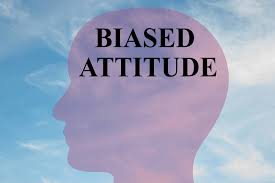At 79, I’m old enough to understand that I’m not immortal. Put it this way: I don’t take out five-year magazine subscriptions, but I’m still willing to buy green bananas.
I might have to rethink my position on magazine subscriptions.
Like many people, I’ve always had an almost superstitious belief that I’ll live only about as long as my parents did. My mother died at 50, and I breathed a sigh of relief when I turned 51. After Mom died, my father became my role model for longevity. He survived to 84, and without thinking much about it, I’ve assumed I’ll probably last until my mid-80s.
But women outlive men, and Americans today have longer life expectancies than our parents and grandparents did. Recently, I took a two-question test at the Social Security website. After asking me to enter my gender and birth date, it informed me that, based on averages, I should be around until I’m about 89, a good five years beyond what I’d assumed was my expiration date.
How long you expect to go on breathing can shape important choices you make about your later life. For instance, a recent study by the Center for Retirement Research at Boston College found that many people decide when to retire based on their assumptions about how long they’ll live—and they often underestimate the years remaining. Those who expect to last longer tend to retire later.
It seems to me that we base plenty of other decisions on how many years we believe lie ahead. My friend, Jeanne, has a number of relatives who reached 100 and beyond, so I asked her whether that has affected her approach to her later years. Though heredity isn’t the whole story when it comes to longevity, it’s a good predictor, and I know Jeanne expects to be a very old woman someday. She works out regularly, she told me, because if she doesn’t keep moving now, she won’t be able to move in a decade or so. Last fall, she was interviewed for a position on a board of directors. The interviewer, knowing she was 81, inquired about her health and asked—much more tactfully than this—whether she thought she’d make it to the end of her four-year term. She replied that if she lived as long as her Aunt Esther did, she’d be around for the next quarter century.
I’m still mulling over how my more modest lifespan expectations have affected me, but I’ve realized that I rarely exercise partly because, if my time is short, I can think of more enjoyable ways to spend it than working out. Another thing: when my beloved dog died recently, I decided against adopting another one because it would probably outlive me, and who would take care of it after I was gone? Also, I know the time is coming when I won’t be able to walk a dog three times a day in rain, snow, sleet and dead of night.
Like Jeanne, I’m in the workforce, but that’s not related to my assumptions about my lifespan. I love what I do. I hope to breathe my last in the middle of a page, fingers on the keyboard with sentences still unwritten.
It may be that I’ll stick around for longer than I had expected to, but I still think my dog decision is realistic. On the other hand, I might change my mind about exercise and magazine subscriptions.

Flora Davis has written scores of magazine articles and is the author of five nonfiction books, including the award-winning Moving the Mountain: The Women’s Movement in America Since 1960 (1991, 1999). She currently lives in a retirement community and continues to work as a writer.



